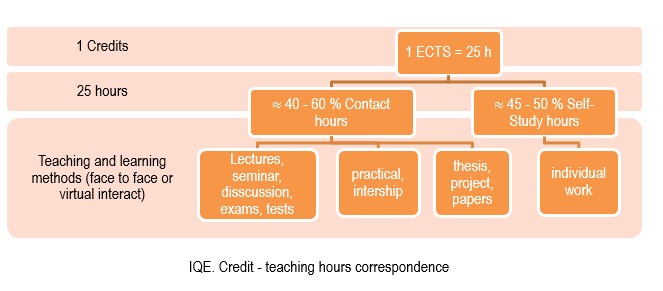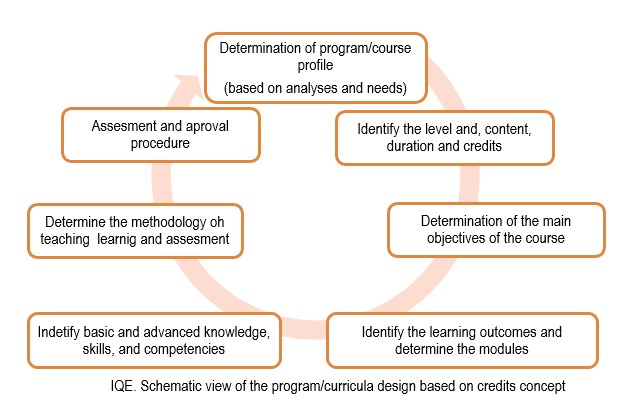1. Program design and approval system
The reorganization of programs/curricula is the first step that affects not only the creation of a comprehensive database of training programs but also helps the creation of mechanisms for measuring, evaluating and monitoring the quality of the curricula. Each curriculum should contain a set of elements by which the HEI has the ability to evaluate the employee engagement and the performance expressed during a training course. A curriculum should contain basic information that identifies it (program title, profile, field, delivery language, delivery type, level according to CFA, approval, provider etc.
Curricula provide specific, measurable, achievable realistic and time - bound objectives and consult key competencies, (total learning hours, number of credits, duration of course) etc.
The content of the curriculum expresses the specific objectives, the methodology of teaching/training, reflecting the teaching and learning activity, the topics of the course, the outcomes, the knowledge, skills, and competencies. If the duration of a program lasts up to one year, the maximum credits per one year are 60 and the maximum number of hours is 1500.

When a training program/curriculum focuses on more than one profile/direction, wherever each curriculum module has its own elements of the training that the learner receives the necessary knowledge. In this case, the total number of credits of the program is determined by the sum of all the credits modules of the program.
If the completion of the program or module is accompanied by testing and evaluation of knowledge and competencies, the program's/module profile should be clearly out of step approach.
Except for testing of the professional knowledge and competencies, learners are also valued for other skills that are part of full-time professional training as well: communication in the mother tongue, communication in foreign languages, mathematical competence and basic competencies in science and technology, information technology competence, learning to learn, Interpersonal, intercultural and social competencies, civic competence, entrepreneurship, cultural expression etc.
Schematic view of the program/curricula design based on credits concept

